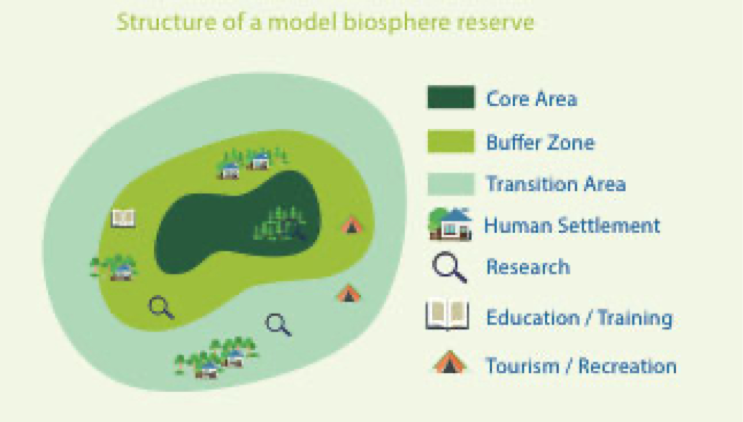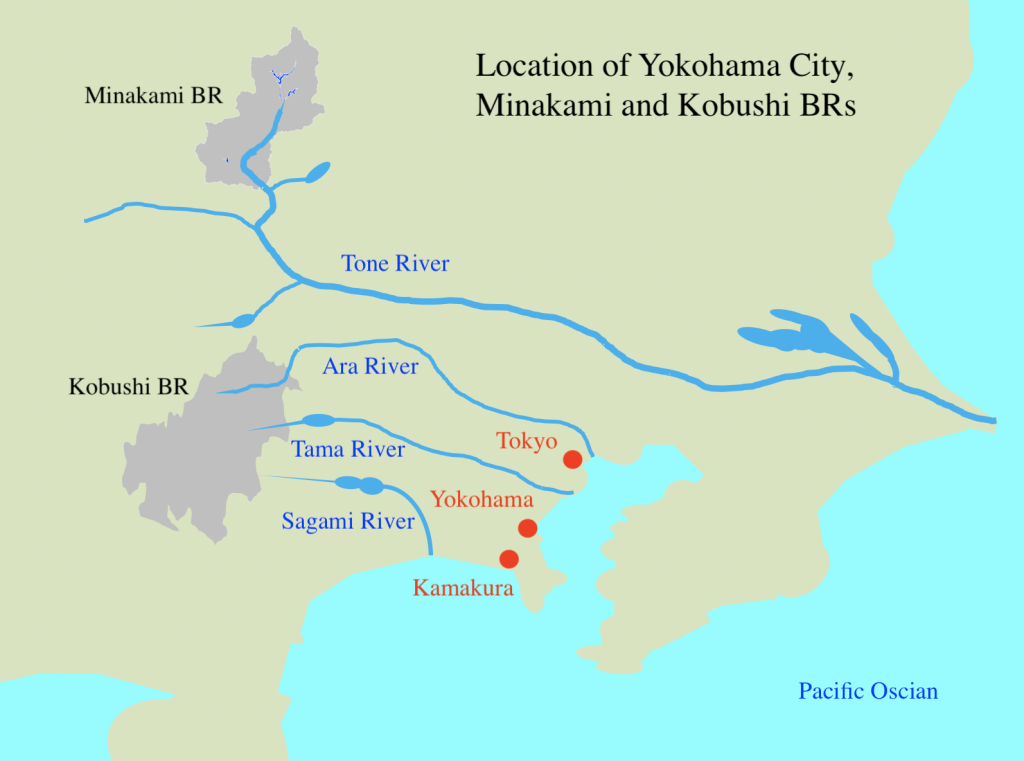

The advent of the 21st century has heralded a “new global age”. Social systems, cultures, religions, and customs are becoming ever more complex in their diversity and a range of issues standing in the way of sustainable global development have become apparent. In such circumstances, it is necessary to cultivate innovative human resources who can face complexity and solve these issues. Japanese Biosphere Reserves Network (JBRN) has been established both as a ground for scientific research and for Education for Sustainable Development (ESD), that should benefit both the local communities and the Japanese society at large, in their endeavor to achieve the Sustainable Development Agenda. In their mutually benefitting relationship, urban dwellers play a fundamental role as they are the main beneficiaries of the ecosystem services (Nature’s Contribution to People – NCP). BRs provide quality products, clean water and energy, minerals, eco-tourism, cultural identity, learning opportunities, etc., and they contribute to their proper conservation and management through “payments” for these ecosystem services. For example, this is what motivated a city like Yokohama to actively support the maintenance of water source forests in surrounding protected areas (and BRs) as a form of “payment for ecosystem services” (PES), an approach which could now be applied to other important issues in the field of food systems, energy and climate change, disaster risks and others. Minakami BR and Kobushi BR are characterised by the fact that they have water source forests in Tokyo metropolitan area.


In support of similar efforts, YNU has been promoting since long interdisciplinary research on water-supply forests. In addition, Prof. Kunio Suzuki, former President of YNU, has for long been the Chair of the Japanese MAB National Committee, and supported activities related to various aspects of BR management in all parts of Japan. In international dimension, the Port-City Universities League (PUL) was established in 2006 as a unique international league of universities located in the world’s preeminent port cities with a secretariat office at YNU. PUL consists of 19 universities from 14 countries including partner University of São Paulo and Dalian University of Technology (As of December 1, 2021). Yokohama constitutes therefore a good learning area for many of the challenges posed by the Sustainable Development agenda, in close relationship with the JBRN, PUL, and partner universities.

